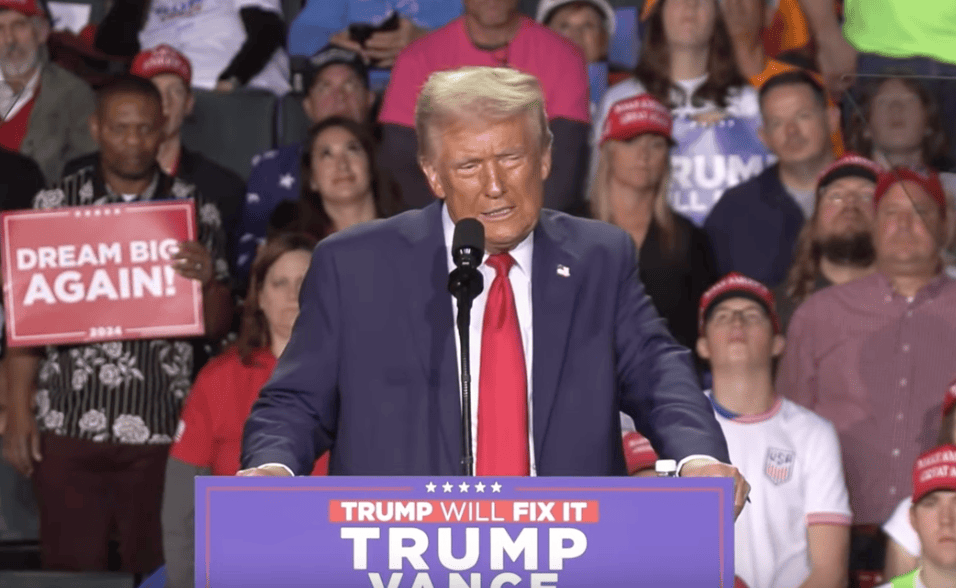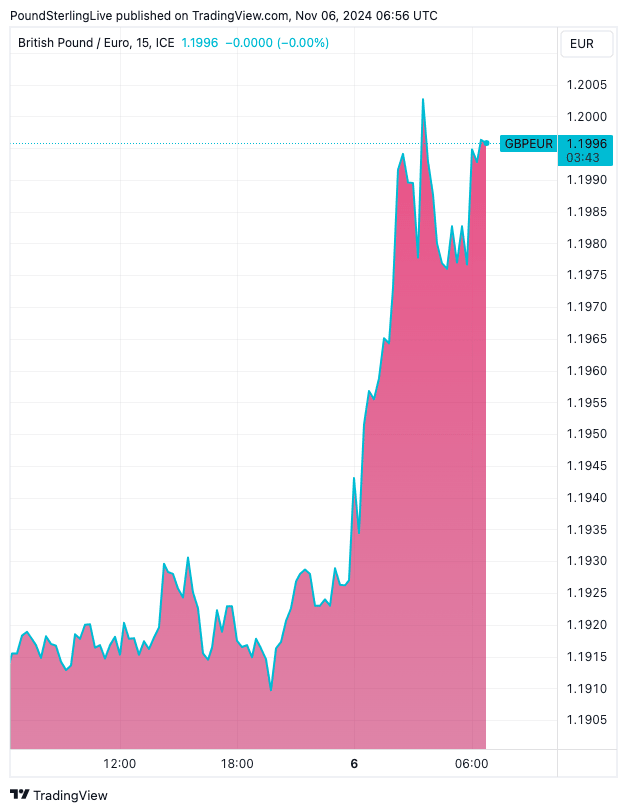
Pound Sterling has advanced against the Euro as markets prepare for a second Trump Presidency.
The all-important key swing state of Pennsylvania has been called for Donald Trump, assuring his path to the White House.
CNN has called Pennsylvania for Donald Trump, after Fox News made the same call. It effectively means that the Republican candidate has won the 2024 presidential election and puts the White House out of reach for Kamala Harris.
Alongside, the Republicans have won the Senate, putting them on course for full control of the country's legislature, meaning a divided Congress would be unable to stand in the way of a Trump 2.0 agenda.
This agenda involves trade tariffs, which will pose a particular headwind to the Eurozone.
This fear is driving a selloff in EURUSD that is outpacing the selloff in GBPUSD. This means the Pound to Euro exchange rate (GBPEUR) is rising and, at the time of writing, the pair is close to 1.20 again:
A keystone of Trump's election offer was the imposition of a 10% global import tariff. The U.S. is the Eurozone's single largest trading partner, which will pose further costs to the Eurozone's manufacturers and lower business output.
This headwind is a concern that is being expressed via lower euro exchange rates. "The eurozone is likely to face a more challenging external environment with Mr. Trump as president of the U.S.," says Chiara Silvestre, an economist at UniCredit Bank.
The U.S., as a country, is also the UK's single most important trade partner; however, UK exports are largely in the form of services, which don't attract tariffs.
The market expresses the lesser hit to the UK via a higher Pound-Euro.
"The euro area is likely to suffer disproportionately from a restrictive US trade policy," says Ulrich Leuchtmann, Head of FX and Commodity Research at Commerzbank.
"Not only because of its direct exports to the US. Should the US not remain the ultimate sink of global trade flows (or only in terms of trade that are more favourable for the US than before), global trade as a whole may suffer. This will affect the export nations. And quite a few of them are in the euro area. Germany, for example," he explains.

